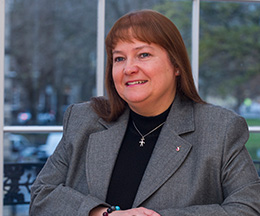Murray Beith Murray LLP is a leading Scottish private client law firm.
For 175 years we have specialised in meeting the legal, financial and administrative needs of individuals and families, family trusts, charities and private companies.
Murray Beith Murray LLP is a leading Scottish private client law firm.
For 175 years we have specialised in meeting the legal, financial and administrative needs of individuals and families, family trusts, charities and private companies.
 Dealing with the estate of a loved one is never easy, and many people wish to understand how long the process might take. However, it can be difficult to put a timescale on what is a very complicated process - unique to each individual. Our years of experience mean we can advise our clients as to how they might make the process of winding up an estate more straightforward. In this article, we look at some of the key factors affecting executry timescales and provide practical advice.
Dealing with the estate of a loved one is never easy, and many people wish to understand how long the process might take. However, it can be difficult to put a timescale on what is a very complicated process - unique to each individual. Our years of experience mean we can advise our clients as to how they might make the process of winding up an estate more straightforward. In this article, we look at some of the key factors affecting executry timescales and provide practical advice.
There is little that can be done about the size of an estate, however, it is possible to get your affairs in order to help your loved ones after you pass away. Matters which may complicate an estate include:
As you can see, the factors which can complicate an estate are many and varied. If you are an executor of an estate with matters which may complicate the winding-up process, it is essential that you seek the advice and assistance of an experienced firm of solicitors.
When a person who is married, in a civil partnership, or has children, passes away, their estate will be subject to the doctrine of Legal Rights. Legal Rights ensure that spouses, civil partners, and children cannot be disinherited and they are legally entitled to a share of the estate. Legal Rights apply regardless of whether or not the deceased left a Will and potential claimants have up to twenty years to bring a claim against an estate.
Legal Rights claims can have an impact on any tax strategies employed as part of the estate planning process, as well as on a family business succession plan. Your solicitor will be able to advise you as to how you might deal with potential Legal Rights claims against an estate to ensure swift resolution.
Many people can be extremely private about their affairs and, while this may have served them well in life, in death it can cause complications. Often executors can find it difficult to locate all of the deceased’s assets, including bank accounts, debts, loans, insurance policies, shares, property, and even assets abroad.
Hidden assets can therefore delay the winding-up process as executors must take the necessary steps to identify all property forming part of the estate. A professional executry solicitor with many years of experience can help identify assets efficiently and comprehensively.
Carol McGovern is an Executry Paralegal and deals with all aspects of executry administration and related tax matters. Murray Beith Murray Executry group has assisted many families with the legal issues arising following the death of a relative. If you have any questions about the issues covered here, or if you wish to discuss any other legal matter, then please complete our contact form or call us on 0131 225 1200.
At Murray Beith Murray, we're more than just lawyers - we're trusted advisors. We clearly outline the executry process, providing straightforward, practical advice and assistance. Our approach to client service is friendly and responsive, and we operate with the highest standards of integrity and professional expertise.
